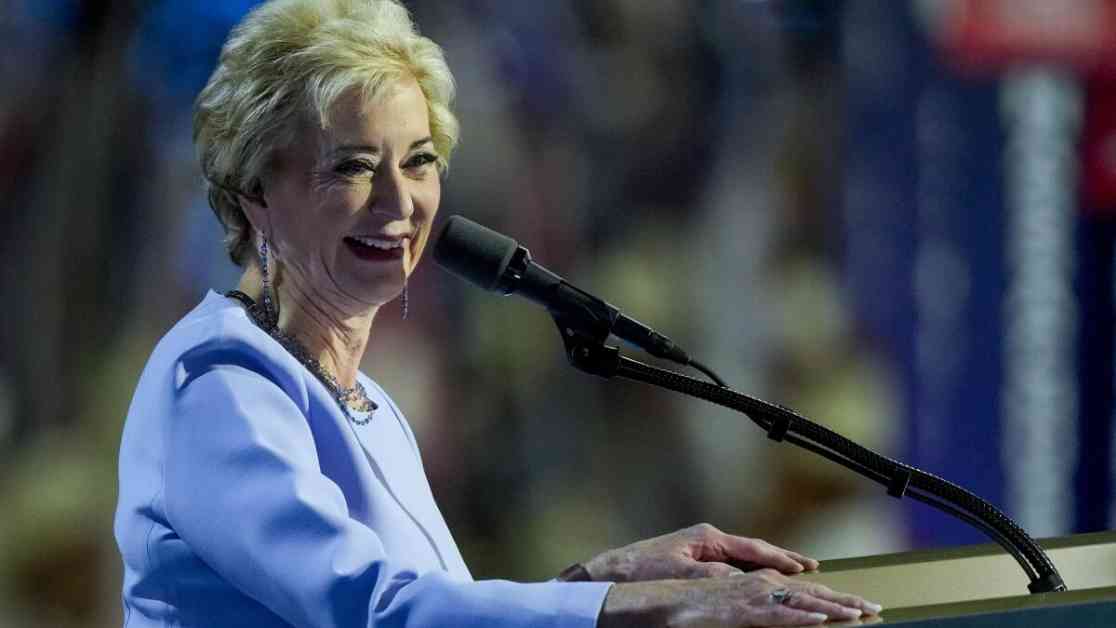President-elect Donald Trump has surprised many by nominating Linda McMahon, a billionaire professional wrestling mogul, as the secretary of Education. McMahon, known for her minimal school background, is a major Republican donor and has been appointed to lead the Trump administration’s education policies. This decision has sparked divided reactions from various education experts and stakeholders.
While some, like Madison Miner from Moms for Liberty, see McMahon as a wonderful choice who will advocate for parent rights and protect children, others, such as Shaun Harper, a USC professor, criticize the nomination. Harper believes that America’s schoolchildren deserve an Education Secretary with deep education experience, rather than a former World Wrestling Entertainment executive like McMahon.
Education experts like Michael Petrilli and Jason Altmire have expressed cautious optimism about McMahon’s appointment. Petrilli praises McMahon’s executive experience but questions if education is a “consolation prize” for losing out on the Commerce job. Altmire hopes that McMahon will take a more thoughtful approach in addressing regulations targeting private career schools.
On the other hand, some, like Sonja Shaw, president of the Chino Valley Unified School District board, believe that McMahon’s business experience will help redirect funding back into classrooms and focus on essential skills like reading, writing, and math. Shaw sees McMahon’s appointment as an opportunity to prioritize the fundamentals of education over bureaucracy and indoctrination.
Critics, such as Gov. Gavin Newsom and education expert Rick Hess, have raised concerns about McMahon’s qualifications and priorities as Education Secretary. Newsom questions McMahon’s vision for education, while Hess advises against making quick judgments based on her background.
McMahon’s alignment with the America First Policy Institute, which focuses on issues like school choice and curriculum approval, raises questions about her stance on key education issues. The institute advocates for greater parental involvement in curriculum approval and emphasizes teaching accurate American history. McMahon’s views on topics like the 1619 Project and financial literacy in schools remain unknown.
As McMahon takes on the role of Education Secretary, the future of federal financial aid, research funding, civil rights, and student loan forgiveness efforts hang in the balance. It remains to be seen how McMahon will navigate these contentious issues and shape the direction of education policy under the Trump administration.
Moving forward, stakeholders like Ted Mitchell from the American Council on Education and David Goldberg from the California Teachers Association look forward to working with McMahon to address critical issues facing public schools and higher education. Ensuring college access, affordability, student success, and adequate resources for public schools are key priorities that will require collaboration between policymakers and educators. The nation’s education system faces a critical moment, and the role of the Education Secretary will be pivotal in shaping its future.



























